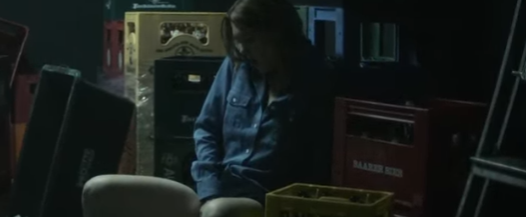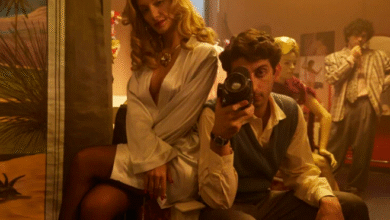
9 Moons (2022)
What happens when passion burns bright but never settles? 99 Moons, directed by Jan Gassmann, is a raw and hypnotic exploration of love without rules. Set in contemporary Zurich, the film captures the emotional chaos between two young people whose connection is as magnetic as it is mismatched. Bigna is a self-assured scientist who avoids commitment and prefers control over emotion. Frank, on the other hand, is impulsive, wounded, and constantly searching for something deeper than just a momentary touch. Their relationship is not linear, nor is it safe. It’s filled with contradictions — attraction without stability, closeness without true understanding.

What makes 99 Moons stand out is its refusal to explain itself. The film doesn’t offer clear answers or familiar romantic resolutions. Instead, it pulls the viewer into a dreamlike rhythm of highs and lows, of nights lit by desire and mornings shadowed by uncertainty. There’s a quiet tension in every glance, every silence, every breath they share. And somehow, that silence speaks louder than dialogue ever could.

Visually, the film is intimate without being invasive. Gassmann uses the camera like a quiet observer, capturing fleeting moments with honesty and sensitivity. The city of Zurich becomes a background hum to the inner storms the characters carry. The electronic soundtrack pulses like a heartbeat, syncing with their unspoken fears and unfulfilled longing.

This is not a film that tries to please. It challenges. It unsettles. It asks us to sit in the discomfort of modern love — where emotional intimacy doesn’t always follow physical closeness, and where two people can touch without truly reaching one another. 99 Moons doesn’t claim to define love. Instead, it dares to show what love often looks like behind closed doors — messy, incomplete, and painfully real.





